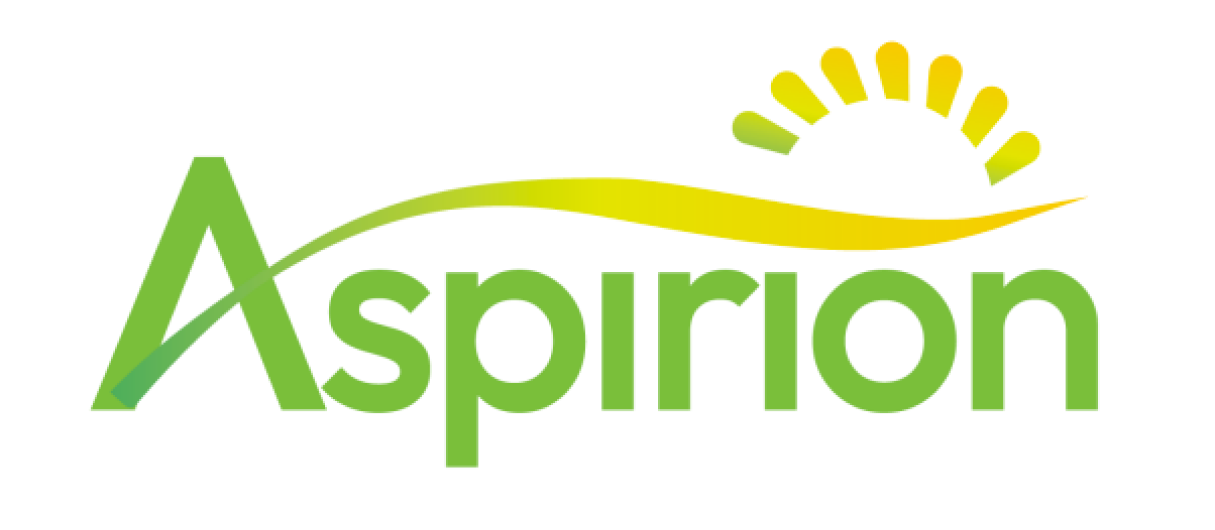Is celiac disease having a significant impact on your daily life?
Be part of our clinical research study for celiac disease

Medical Condition
Celiac disease

Participation Duration
Initially up to 48 weeks, with the potential to extend further (subject to your decision and eligibility).

Phase
2 a/b
What is Celiac Disease?
Celiac disease is an autoimmune disorder that affects the small intestine. In autoimmune conditions the body’s immune system mistakenly attacks its own tissues, and in celiac disease this is triggered by gluten — a protein found in wheat, barley, and rye. When someone with celiac disease eats gluten, their immune system reacts and attacks the small intestine. This causes damage to the lining of the small intestine and means the body cannot absorb nutrients properly.
This leads to the symptoms of celiac disease, which can include diarrhea, abdominal pain, bloating, fatigue, and joint pain. Celiac disease can significantly impact a person’s health and quality of life. If left untreated, it can also lead to additional, serious health problems. Diagnosis of celiac disease involves blood tests and an intestinal biopsy (to look at the lining of the small intestine). The exact cause of celiac disease is unknown but there is a heredity link, which means it can run in families.
The only current treatment for celiac disease is to strictly follow a gluten-free diet. Unfortunately, a lot of people living with celiac disease experience symptoms even when on a gluten-free diet. Very small amounts of gluten are enough to trigger symptoms, so accidentally consuming gluten (for example, through cross-contact with foods and drinks that contain gluten) can cause a reaction.
What is the ASPIRION clinical study?
The ASPIRION study is looking into a new, investigational study drug (amlitelimab) for patients with celiac disease. The aim of the study is to see whether the investigational study drug, in combination with a gluten-free diet, can reduce the damage in the small intestine and what effect it has on the symptoms caused by celiac disease.
The study drug is investigational because it hasn’t been approved by health authorities, such as the US Food and Drug Administration (FDA), as a treatment for celiac disease. It can only be used in clinical research studies, like this one, to see how well it works and how safe it is for patients. Because it is still under investigation for the treatment of celiac disease, its effectiveness and safety have not been established.
Who can participate?
The ASPIRION study is looking for patients with celiac disease who continue to have symptoms despite following a gluten-free diet. You may be eligible* to participate in the study if you:
Are between 18 - 75 years old
Have a medical diagnosis of celiac disease
Have been on a gluten-free diet for at least 12 months but are still experiencing symptoms
*Please note there are more eligibility criteria that must be met to be considered for participation.
What happens if I participate?
If you choose to take part in the ASPIRION study, the total study duration can last initially up to 48 weeks. There is a possibility of extending this up to 132 weeks, if you choose to continue in the study and are eligible to do so. You will be asked to maintain your current gluten-free diet throughout the length of your participation in the study and complete a study diary to record your symptoms. The research center team will closely monitor your progress throughout the study. The study has four stages:
Screening Period
The study doctor and team at the research center will discuss the study with you and answer any questions you might have. They will assess your eligibility for the study, and the decision to participate will be yours to make. Once the specific tests and assessments are completed, and if you meet all the required criteria for participation, the study treatment period will start.
Study Treatment Period
During this period, you will receive either the investigational study drug or a placebo as a subcutaneous (under the skin) injection. A placebo will look like the investigational study drug but does not contain any active medications. The study doctor and staff at the research center will provide you with more information about the investigational study drug and placebo, including the chances of which one you will receive.
The study treatment period can last up to 28 weeks (approximately 6 months). You will need to regularly visit the research center to receive your injection and undergo additional tests and assessments, such as blood samples.
Safety Follow-up Period
After the study treatment period finishes and you stop receiving either the investigational study drug or placebo, there will be a follow-up period of 16 weeks. You will need to return to the research center for a final visit to complete final tests and assessments.
Extension Period
For ASPIRION clinical research study participants, you may have the option to extend your participation, if you are eligible to continue in the study. During this period, you would receive the investigational study drug for just over 2 more years. This stage of the study is optional, and whether or not you take part in the study extension period is your choice to make.
How do I participate?
1. Complete the online questions to see if you pre-qualify for the study
2. Submit your contact information
3. Answer our call to answer more questions to help us determine if you may be eligible
4. Confirm your interest and the nearest research center
5. Speak with the research center about the next steps to participate in the ASPIRION study
Frequently Asked Questions
What will happen after I complete the online questionnaire?
If you complete the online questionnaire and are potentially eligible to take part in ASPIRION study, a qualified medical professional will contact you to complete a telephone assessment and further check your eligibility to see if you pre-qualify. If you do pre-qualify, you will also be advised of the ASPIRION research centers closest to you. The research center you choose will then be provided with your contact details so they can schedule an appointment with you to discuss more details about the study and learn about your medical history.
Where can I find more information about the ASPIRION clinical study?
You can learn more about the ASPIRION clinical research study by visiting the below:
clinicaltrials.gov - NCT06557772
If you do pre-qualify for the ASPIRION study, you will be referred to a research center in your area. The study doctor and team at the research center will be available to answer any questions you may have. If you are interested in learning more about clinical research studies, you can also speak with your primary care physician.
I’m interested in finding out if the ASPIRION is suitable for a loved one.
To determine if the ASPIRION study may be suitable for a loved one or family member, they will need to see if they pre-qualify by completing the online assessment questions and, if eligible, the telephone assessment. Potential study candidates who are aged below the legal age cannot complete the pre-qualification steps.
What type of study-related medical care is provided during the study?
Any medical care, tests or procedures that are for the purpose of the study will be provided and will be explained by the research center. [There is no insurance required to participate]. As you will need to visit the research center throughout the duration of the study, there may be travel reimbursement available.
What is a clinical research study?
Clinical research studies explore whether an investigational study drug or device is safe and effective for humans. They are one of the most important steps in bringing new potential treatments to patients.
Why is clinical research important?
Clinical research may add to medical knowledge and can potentially help bring new potential treatments to people with medical conditions. Before an investigational study drug is approved, it needs to be assessed in clinical studies (also called clinical trials), to determine if it works and is safe. All approved prescription drugs have gone through clinical studies to make sure that they are effective and to understand what side effects may be involved.
Clinical studies rely on the participation of volunteers. It can take several years for a new potential treatment to reach the public. Often, this timeline is due to how long it takes to complete the clinical study, which can be due to shortage of participants.
Who runs clinical studies?
Clinical studies can be sponsored, or funded, by pharmaceutical or biotechnology companies, academic medical centers, voluntary groups, or health care providers. The ASPIRION study is funded by Sanofi ([Sanofi US Services, Inc.]), a pharmaceutical company.
Every research center is led by a principal investigator, who is a medical doctor or healthcare professional. Clinical studies also have a research team that may include doctors, nurses, and other health care professionals. The clinical research centers and their staff are not part of the pharmaceutical company sponsoring the study, and their participation in the clinical study has been approved by an Independent Ethical Committee. These are research authority committees that oversee the ethical conduct of clinical research studies.
What are the phases of clinical research studies?
Clinical studies are conducted in different phases.
Phase 1: After researchers have investigated the investigational study drug in laboratory tests to see if it has an effect and ensure that it is safe to test in humans, the Phase 1 study is carried out to test the investigational study drug in a small group of people for the first time. This is done to evaluate its safety, determine a safe dosage range, and identify potential side effects. The investigational study drug is referred to as an investigational study drug since it is under investigation and not yet approved by health authorities for use outside of clinical trials.
Phase 2: The investigational study drug is given to a larger group of people (compared to Phase 1) to see if it is effective and to further evaluate its safety. The ASPIRION study is a phase 2 study.
Phase 3: The investigational study drug is given to large groups of people to confirm its efficacy, monitor side effects, compare it to commonly used treatments or placebo, and collect information that will allow the investigational study drug to be used safely.
What is a “placebo”?
Placebo is another name for an inactive substance. A placebo may look like the medicine being studied, but it has no medical effect. Placebos are sometimes used to help researchers tell the difference between the medicine being studied and no treatment.
During the consent process, you will be told whether the study involves the use of placebo, and what your chances are of receiving it. Typically, you will learn that your chances of receiving a placebo are like the flip of a coin. You will also be informed of any potential risks if you receive a placebo.
In most cases, the participant will not know whether they have received the investigational study drug or vaccine, an existing treatment, or placebo. The medical professionals will often not know, either. This is called a double-blind trial. It helps minimize any bias or prejudiced opinion when researchers compare people who received the investigational study drug to those who did not.
Will I be given Gluten as part of this study?
For some of the study treatment period, you will also be asked to take a dietary supplement. For some study participants this will contain a small amount of gluten (equivalent to half bite of bread), and some will take a dietary supplement that contains no gluten.
This is to mimic accidental gluten exposure, which may happen in everyday life. This is necessary because the investigational study drug has to be tested with gluten exposure to see how well it works. The research center team will provide you with more information about your chances of receiving gluten during the study.
Intended for U.S. Audiences Only © 2024 Sanofi US Services, Inc. All Rights Reserved.

